Myanmar junta wants poll in civilian graveyard
Across Buddhist-majority Myanmar, the earthquake is being read as a damning verdict of Min Aung Hlaing’s leadership but the junta leader is forging ahead in the hope of capitalising on the catastrophe.
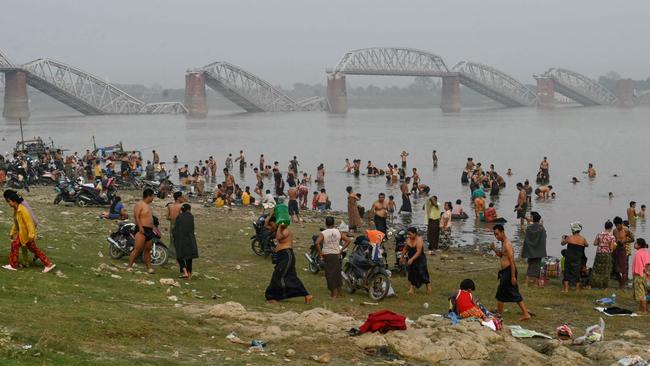
As earthquake survivors scrambled through the rubble of Myanmar’s devastated cities and towns for the remains of loved ones this week, the country’s Union Electoral Commission decided this was as good a time as any to announce coming polls.
The junta-controlled agency said on Wednesday that political parties had until May 9 to register for December elections that will almost certainly be staged in the ruins of large swathes of the country.
With the death toll climbing towards 4000 – a figure widely believed to be an underestimate – millions in need of food and fresh water, and fighting continuing across the country notwithstanding a declared ceasefire, an election declaration seems the “height of absurdity”, one rights advocate told The Australian.
Seventeen million people have been affected by the 7.7-magnitude earthquake that struck central Myanmar on March 28.
More than 5000 people have been injured, among them detained former leader Aung San Suu Kyi who suffered a broken left arm when the Naypyidaw house she is being held in collapsed in the quake, it was revealed on Friday.
By the military’s own calculations, the earthquake and dozens of destructive aftershocks have destroyed or damaged 48,834 residential buildings and 5275 pagodas in Naypyidaw, Mandalay, Shan State, Sagaing and Bago regions, as well as 2045 schools, 167 clinics and 2171 government offices.
But those figures account only for junta-controlled areas, and not the affected districts held by anti-regime groups. Even before this latest disaster, the military junta – whose February 2021 overthrow of the government of Aung San Suu Kyi plunged the country into civil war and economic collapse – controlled as few as 100 of Myanmar’s 330 townships, at least a third of which are contested by the popular armed resistance.
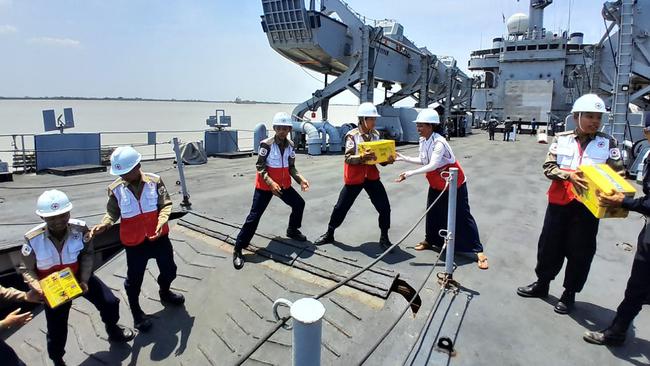
Just this week, the military lost another two key townships in Kachin and Chin State.
While the junta and its military have been roundly condemned for failing to help ordinary citizens in the wake of the earthquake, civil servants and soldiers have found they too have had to fend for themselves, dangerously compounding disaffection with the regime.
“It has thrown Naypyidaw into complete chaos which must effect (junta chief) Min Aung Hlaing’s ability to get things done, as well as the war-fighting capabilities of the military,” says Crisis Group veteran Myanmar researcher Richard Horsey.
“(Elections) are eight months away but it’s pretty clear that in eight months Mandalay is not going to be in great shape, and it was probably one of the few places he could have held the election. These elections are going to be so resisted, cause so much outrage, they will be a magnet for violence.”
Then there is the cosmic aspect. Across Buddhist-majority Myanmar, from the country’s elites to its most humble citizens, the earthquake is being read as a damning verdict of Min Aung Hlaing’s leadership.
In devastated Mandalay city, development consultant Zaw Mint Thu* told The Australian: “Myanmar Buddhists believe earthquakes happen because of bad leaders.
“Min Aung Hlaing has committed a lot of crimes. He has expelled the elected government, jailed leader Aung San Suu Kyi and many other people.
He has accumulated many sins in the past four years. Nature is giving an indication that he is highly immoral.”
Whether that will be enough to end his dictatorship is doubtful. But the cumulative impact of his battlefield losses, the Myanmar elite’s impatience over his monopolising of power, and the junta’s failure to deliver aid when needed has certainly weakened his position.
“Min Aung Hlaing is working off an old blueprint in which the Myanmar military has carried out massive strikes against civilians and mass-scale oppression in the past and still managed to be part of the political process and hold elections,” says Fortitude Rights’ Matthew Smith. “I think those days are over. There are a lot of terrible things happening there now, primarily down to the military.”
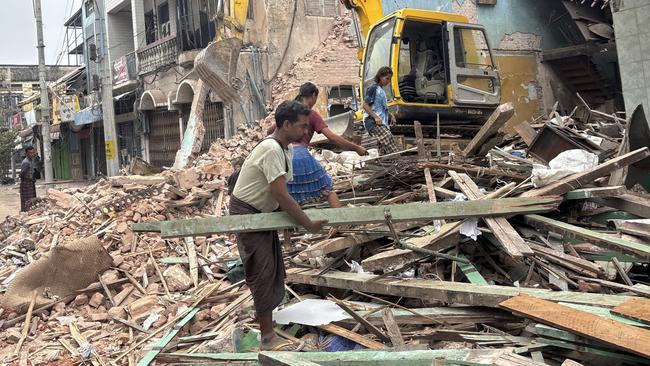
Tens of thousands of civilians, journalists, political leaders and protesters have been arrested and imprisoned since the coup and more than 6000 killed, before last month’s earthquake which has claimed thousands more.
The 2021 coup hollowed out the civil service and professional sectors that are now badly needed for relief and reconstruction, from engineers to doctors and emergency workers. Many are either in jail, have fled the country, or are working for the shadow civilian administration.
Of those who did remain in their jobs, a good number are said to have fled Naypyidaw in the wake of the disaster. And amid all that chaos, the military continues to bomb resistance areas.
“These are not preconditions for free and fair polls. Min Aung Hlaing should not be orchestrating elections right now. He should be in hand cuffs in The Hague,” Mr Smith says.
While Min Aung Hlaing made a rare request for international aid within days of the quake, the UN has accused the military of blocking and controlling access to aid and rescue teams. A full two weeks after the earthquake, volunteers and aid workers in many areas were still digging through ruins with their bare hands.
“We need to use proper machines to recover bodies under the collapsed buildings,” Ei Mon Khine, an official from a social assistance association working in Mandalay region, told CNN.
The longer it took to remove the dead bodies, the more they broke down and the harder it became to recover them, she added.
Julie Bishop, the UN Secretary General’s special envoy to Myanmar, was on the ground in quake-affected Myanmar this week to reiterate her plea for more humanitarian aid and an end to fighting. But there was no mention of the junta’s determination to hold polls across a civilian graveyard of central Myanmar.
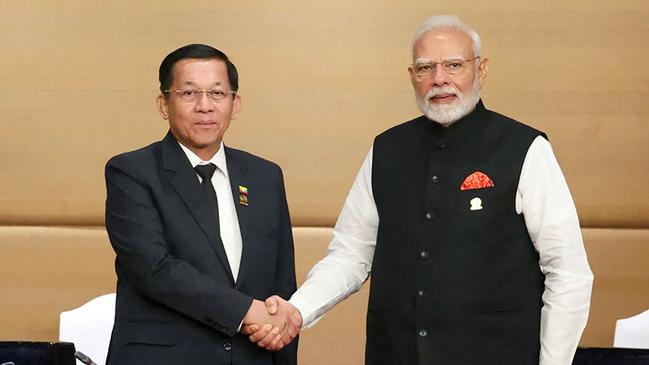
In the wake of Min Aung Hlaing’s appearance at last Friday’s BIMSTEC regional leaders’ meeting in Bangkok, where he met on the sidelines with Indian Prime Minister Narendra Modi, some have suggested the junta commander is capitalising on his country’s disaster to start repairing his blighted international reputation and build his legitimacy ahead of polls.
Certainly, the quake has provided a diplomatic opportunity for the reviled senior general, notwithstanding the fact he remains the subject of an International Criminal Court arrest warrant for crimes against humanity.
But Crisis Group’s Richard Horsey insists “the earthquake is a tangle of disadvantage” for the junta, and that Min Aung Hlaing would be far happier to be dictator for life, if not for China’s insistence that Myanmar hold polls this year.
As the only country likely to finance Myanmar’s reconstruction, and the neighbouring power that helped pull the military back from the brink of defeat last year, Beijing is not to be ignored.
India, too, is keen to see elections held, notwithstanding protestations from many Western powers that any elections held under current circumstances would be illegitimate.
Most Myanmar opposition parties have been banned or have vowed to boycott any poll, while almost 22,000 political prisoners remain in detention. Aung San Suu Kyi’s former ruling National League for Democracy was dissolved in 2023 for failing to re-register under an electoral law introduced after the coup.
Tun Aung Shwe, the civilian resistance National Unity Government’s representative in Australia, told The Australian the NUG would neither participate in nor recognise the results of any junta election despite pressure from Beijing to have the NLD contest the polls.
“That’s why the Chinese special envoy to Myanmar has repeatedly asked to visit Aung San Suu Kyi,” he said. “Senior generals have visited her very frequently to try to persuade her, moving into house detention. But she is very strong. She will never allow the NLD to participate.”
* Not their real name


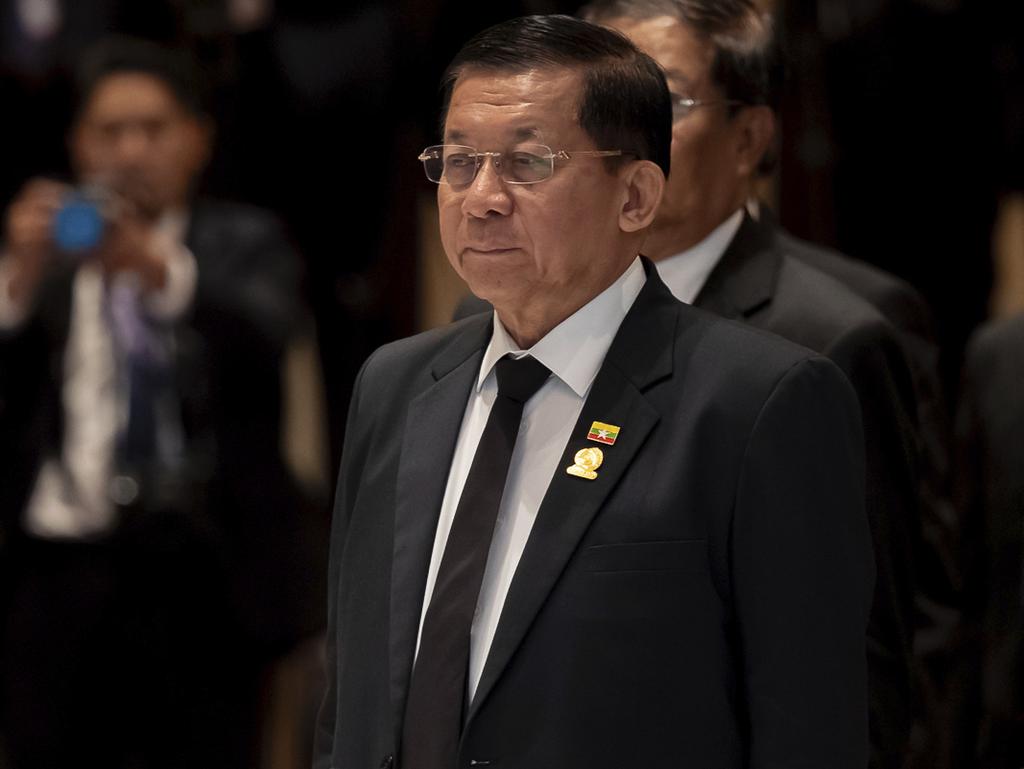

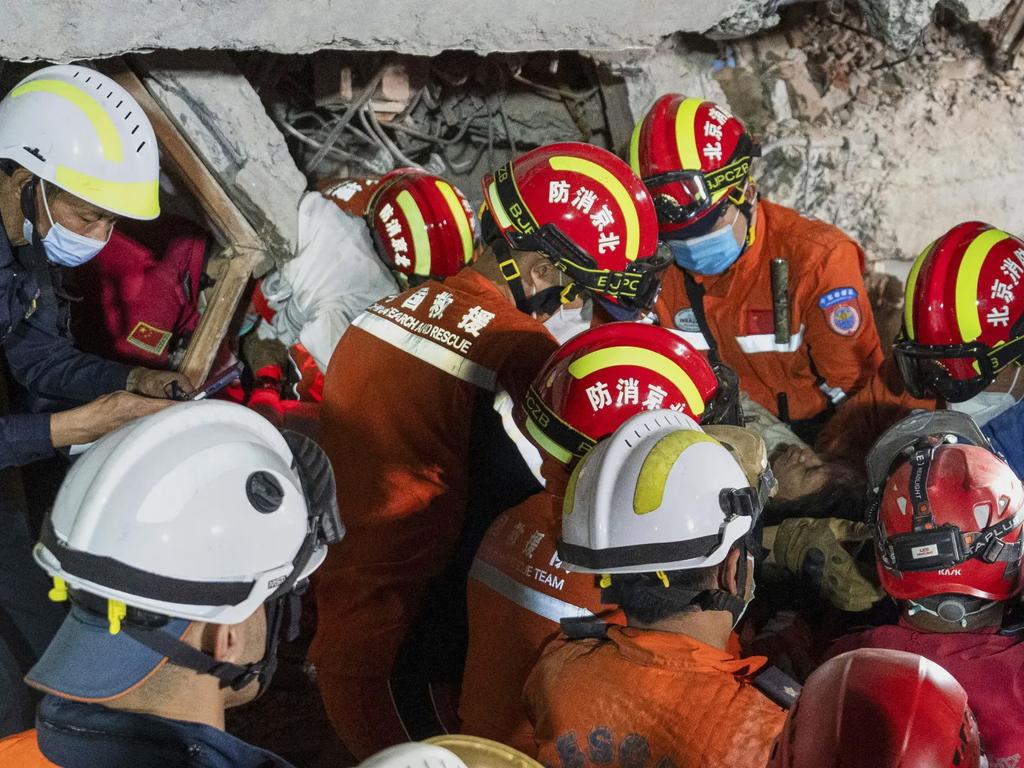



To join the conversation, please log in. Don't have an account? Register
Join the conversation, you are commenting as Logout